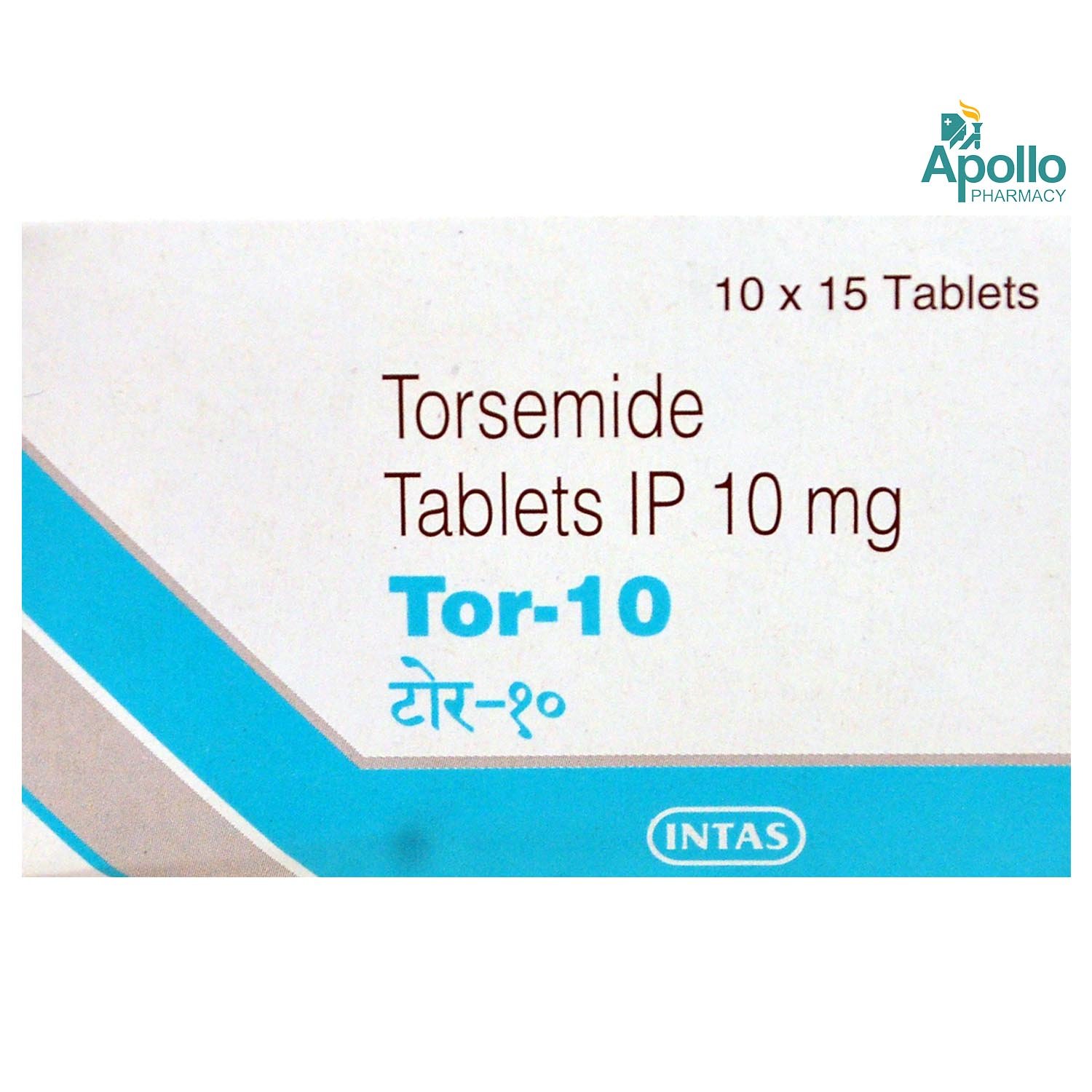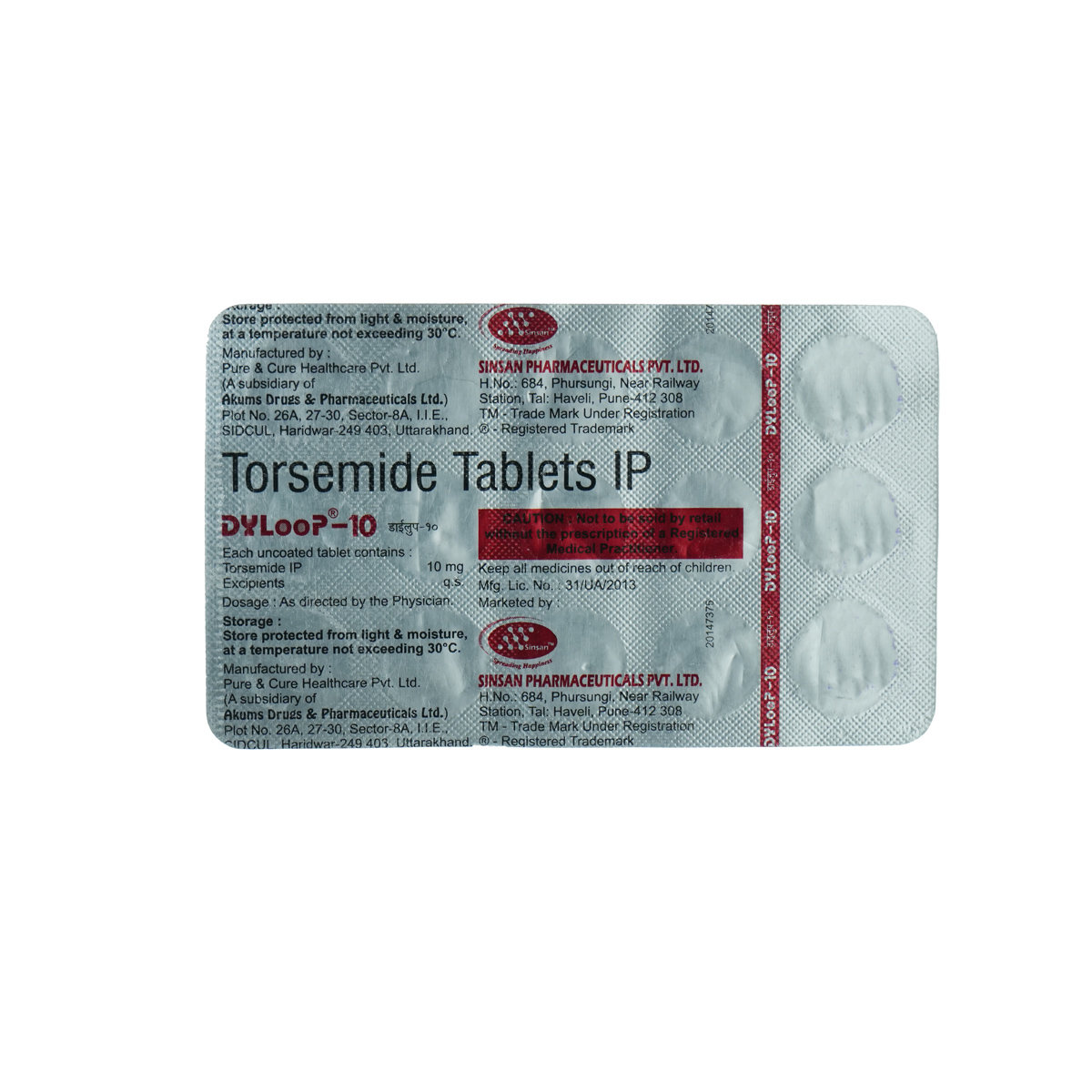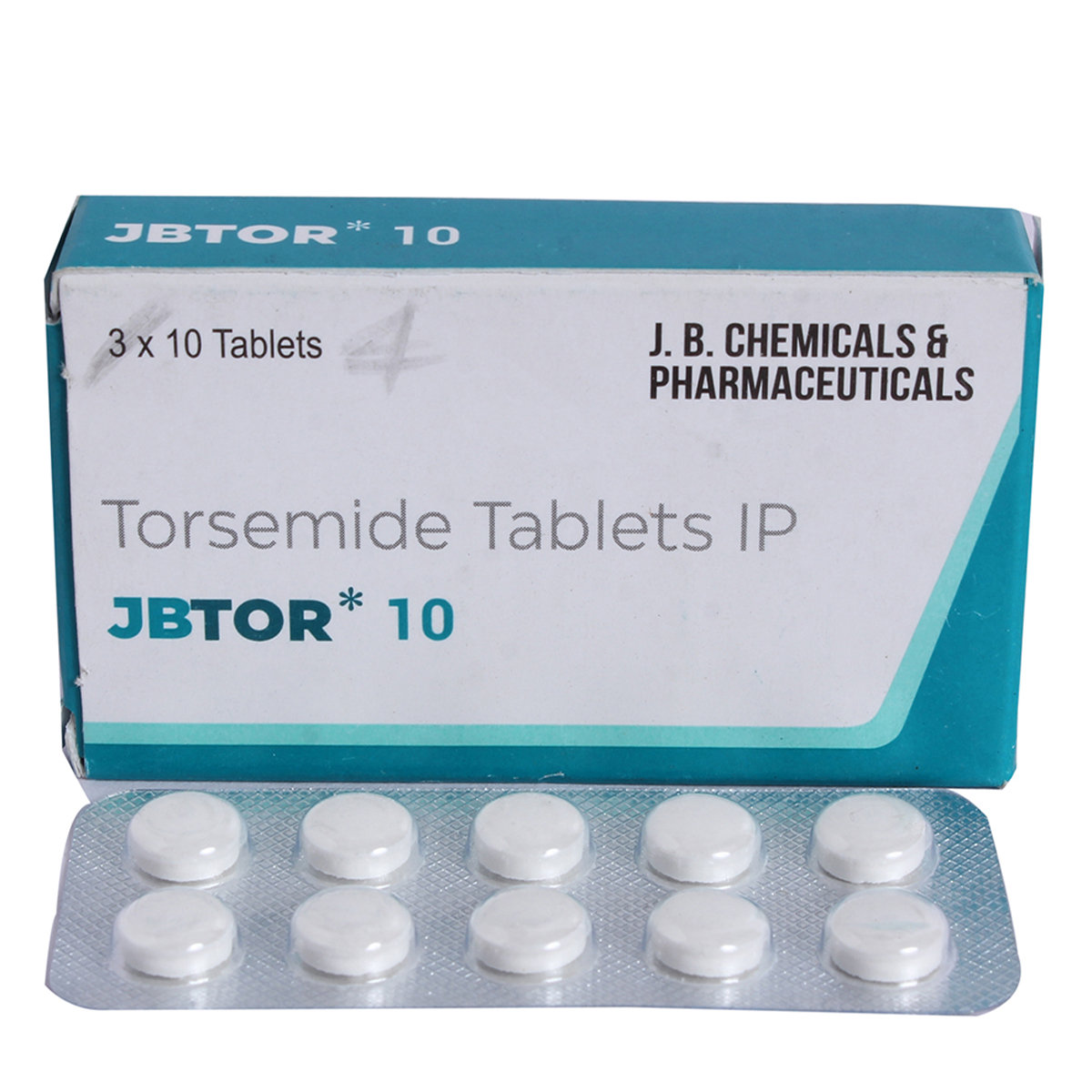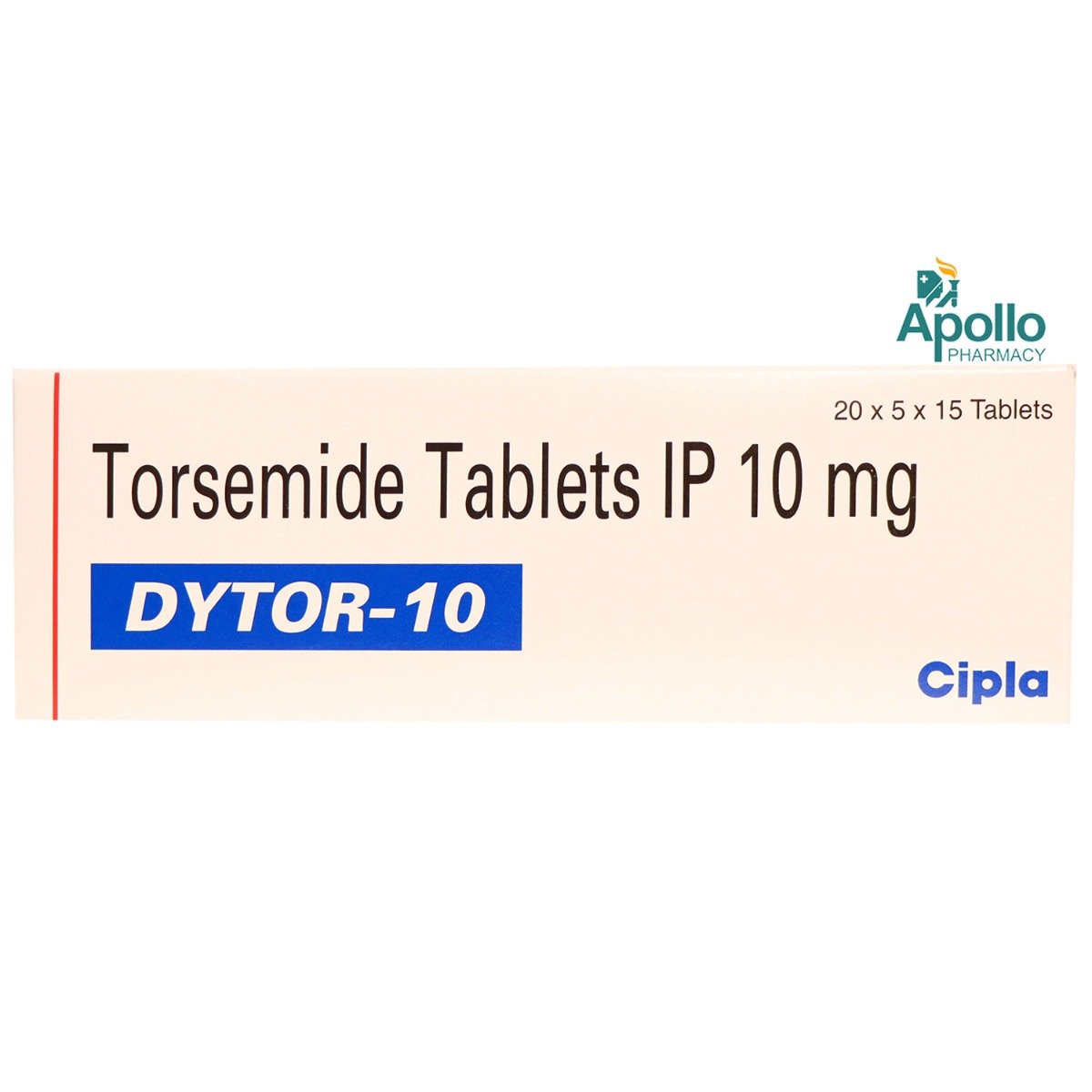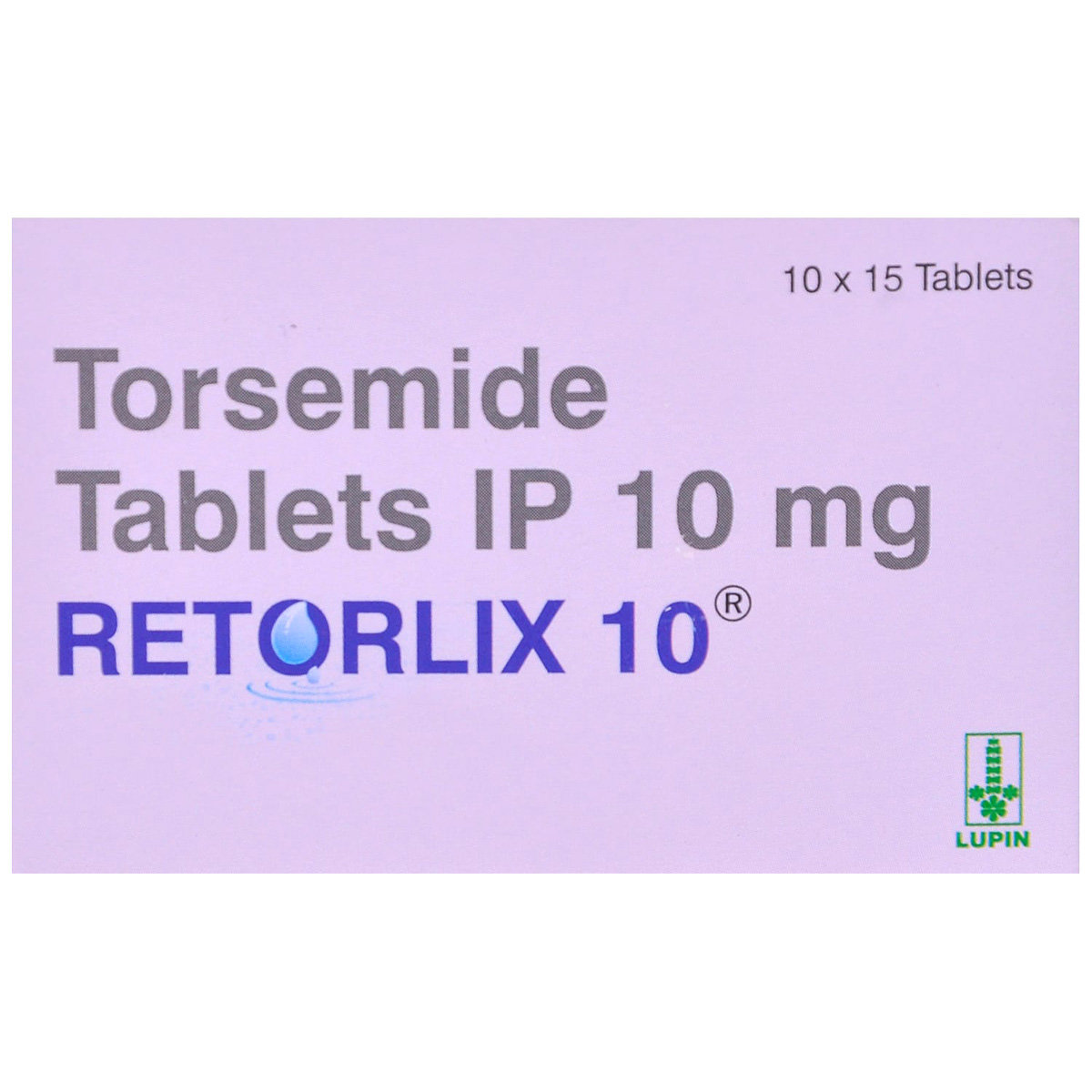- Home
- Torsibid 10 Tablet
Torsibid 10 Tablet Substitute
Torsibid 10 Tablet Substitute
Medicine Composition:
TORSEMIDE-10MGAll Substitutes & Brand Comparisons
RX
Tormax 10 mg Tablet 10's
Lividus Pharmaceuticals Pvt Ltd
₹39
(₹3.51 per unit)
32% CHEAPERRX
Leotor-10 Tablet 10's
Sudha Lifesciences Pvt Ltd
₹40
(₹3.6 per unit)
31% CHEAPERRX
Texlon 10 Tablet 15's
Alteus Biogenics Pvt Ltd
₹67.5
(₹4.05 per unit)
22% CHEAPERRX
Loopgo 10 mg Tablet 10's
Calren Care Lifesciences Pvt Ltd
₹46.5
(₹4.19 per unit)
19% CHEAPERRX
Tor-10 Tablet 15's
Intas Pharmaceuticals Ltd
₹71.5
(₹4.29 per unit)
17% CHEAPERRX
Renator 10 Tablet 10's
Repens Healthcare India Pvt Ltd
₹48.5
(₹4.37 per unit)
16% CHEAPERRX
Rencut-10 Tablet 10's
Medigen Life Sciences
₹45
(₹4.5 per unit)
13% CHEAPERRX
Torsepure-10 Tablet 10's
Redmax Pharma
₹51.5
(₹4.64 per unit)
11% CHEAPERRX
Dyloop-10 Tablet 15's
Sinsan Pharmaceuticals Pvt Ltd
₹77.5
(₹4.65 per unit)
10% CHEAPERRX
Orinator 10 Tablet 10's
Zenska Life Sciences Pvt Ltd
₹60.5
(₹5.45 per unit)
4% COSTLIERRX
Out of StockTor 10 mg Tablet 10's
Intas Pharmaceuticals Ltd
₹63.5
(₹5.72 per unit)
9% COSTLIERRX
Jbtor 10 Tablet 10's
J B Chemicals & Pharmaceuticals Ltd
₹64
(₹5.76 per unit)
10% COSTLIERRX
Dytor-10 Tablet 15's
Cipla Ltd
₹105.5
(₹6.33 per unit)
21% COSTLIERRX
Tide-10 Tablet 10's
Torrent Pharmaceuticals Ltd
₹71.5
(₹6.44 per unit)
23% COSTLIERRX
Retorlix 10 mg Tablet 15's
Lupin Ltd
₹110
(₹6.6 per unit)
26% COSTLIER

When Should You Consider Switching from Torsibid 10 Tablet ?
Patients may explore substitutes in the following scenarios:
- High monthly cost of Torsibid 10 Tablet
- Non-availability in local pharmacies
- Generic recommendation by a doctor
- Side effects or better tolerability with alternatives
What to Know Before Switching
Before you switch from Torsibid 10 Tablet to another medicine, here are some important points to keep in mind:
Same salt, different brands:
Most substitutes contain the same active ingredient - TORSEMIDE-10MG, but the fillers, coating, or manufacturing quality may vary slightly.
Consult your doctor first:
Even if the salt is the same, your doctor can confirm if the substitute is right for your condition, dosage, and health history.
Watch out for allergies or reactions:
Some people may react differently to certain brands due to inactive ingredients. If you notice any side effects, inform your doctor immediately.
Price ≠ effectiveness:
A lower-priced substitute doesn't mean it's less effective. Many generic medicines work just as well as branded ones.
Check the dosage form and strength:
Always match the substitute’s strength (e.g., 5mg, 10mg) and form (tablet, capsule, syrup) with what your doctor prescribed.
Uses
Medicinal Benefits
When Torsibid 10 Tablet is taken, the blood vessels in your body will be relaxed and it will help in lowering the blood pressure. Also, it relaxes the blood vessels and helps to improve blood flow. It helps in losing out excess fluids from the body by increasing the production of urine which helps reduce the workload on the heart and makes it more efficient for pumping blood throughout the body. Thus, it helps to lower high blood pressure, also relieves oedema and helps you carry out your daily activities more efficiently.
FAQs
The substitutes of Torsibid 10 Tablet contain the same active salt(s) - TORSEMIDE-10MG. However, they may differ in price, manufacturing quality, and inactive ingredients. Speak to your doctor to find a suitable option.
Switching to a generic substitute medicine in the place of Torsibid 10 Tablet is often possible if it has the same salt, strength, and dosage form. But always check with your doctor before making any changes to your medication.
Generics versions of Torsibid 10 Tablet are typically more affordable because they don’t include the original brand's research, development, and marketing costs. They contain the same active ingredient and are approved for safety and effectiveness.
Most people don’t notice any difference. However, some may react to different fillers or coatings. If you notice any unusual symptoms after switching, consult your doctor.
Make sure the new medicine has the same active salt, strength, dosage form. Always confirm the change with your doctor or pharmacist.
Substitutes of Torsibid 10 Tablet meet the same safety and efficacy standards as Torsibid 10 Tablet , but small differences in absorption or formulation can exist. A doctor can help you choose the right one for your needs.
Yes. Substitutes of Torsibid 10 Tablet may vary in color, size, or shape due to differences in manufacturing and branding, but this does not affect how they work.
Yes, it’s generally safe to switch between multiple substitutes of Torsibid 10 Tablet if they have the same salt and strength. However, always inform your doctor so they can monitor how your body responds.
Yes, many people safely use substitutes of Torsibid 10 Tablet for long-term treatment. Just ensure it’s done under medical supervision.
If your symptoms stay under control or lab results remain stable, the substitute for Torsibid 10 Tablet is likely working well. Regular follow-ups with your doctor are important.
Absolutely. Even with the same salt, small differences can affect how your body responds when switching from Torsibid 10 Tablet to its substitute. Always consult your doctor before switching.
Buy best Cardiology products by
Torrent Pharmaceuticals Ltd
Sun Pharmaceutical Industries Ltd
Lupin Ltd
Intas Pharmaceuticals Ltd
Cipla Ltd
Micro Labs Ltd
Macleods Pharmaceuticals Ltd
Abbott India Ltd
Ajanta Pharma Ltd
Ipca Laboratories Ltd
Eris Life Sciences Ltd
Mankind Pharma Pvt Ltd
Lloyd Healthcare Pvt Ltd
Dr Reddy's Laboratories Ltd
Glenmark Pharmaceuticals Ltd
Emcure Pharmaceuticals Ltd
Alembic Pharmaceuticals Ltd
Alkem Laboratories Ltd
East West Pharma India Pvt Ltd
USV Pvt Ltd
Zydus Healthcare Ltd
Aristo Pharmaceuticals Pvt Ltd
Elbrit Life Sciences Pvt Ltd
J B Chemicals & Pharmaceuticals Ltd
Zydus Cadila
Akumentis Healthcare Ltd
Alteus Biogenics Pvt Ltd
Hbc Life Sciences Pvt Ltd
Fusion Health Care Pvt Ltd
Troikaa Pharmaceuticals Ltd
La Renon Healthcare Pvt Ltd
Corona Remedies Pvt Ltd
Jubilant Lifesciences Ltd
Medley Pharmaceuticals Ltd
Knoll Healthcare Pvt Ltd
Msn Laboratories Pvt Ltd
Zuventus Healthcare Ltd
Cadila Pharmaceuticals Ltd
Blue Cross Laboratories Pvt Ltd
Lividus Pharmaceuticals Pvt Ltd
Morepen Laboratories Ltd
Ranmarc Labs
Shrrishti Health Care Products Pvt Ltd
Sanofi India Ltd
Steris Healthcare
Elder Pharmaceuticals Ltd
Primus Remedies Pvt Ltd
Unison Pharmaceuticals Pvt Ltd
Eswar Therapeutics Pvt Ltd
Knoll Pharmaceuticals Ltd
Tas Med India Pvt Ltd
Systopic Laboratories Pvt Ltd
Indiabulls Pharmaceuticals Pvt Ltd
Leeford Healthcare Ltd
Sinsan Pharmaceuticals Pvt Ltd
Biochem Pharmaceutical Industries Ltd
Cadila Healthcare Ltd
Azkka Pharmaceuticals Pvt Ltd
Nirvana India Pvt Ltd
Orsim Pharma
Prevego Healthcare & Research Pvt Ltd
Econ Healthcare
Elinor Pharmaceuticals (P) Ltd
FDC Ltd
Sunij Pharma Pvt Ltd
Nicholas Piramal India Ltd
Astra Zeneca Pharma India Ltd
Pfizer Ltd
Lia Life Sciences Pvt Ltd
Shine Pharmaceuticals Ltd
Elicad Pharmaceuticals Pvt Ltd
Indoco Remedies Ltd
Proqol Health Care Pvt Ltd
Vasu Organics Pvt Ltd
Biocon Ltd
Opsis Care Lifesciences Pvt Ltd
Johnlee Pharmaceuticals Pvt Ltd
Merck Ltd
Wockhardt Ltd
Auspharma Pvt Ltd
Ergos Life Sciences Pvt Ltd
Lakshya Life Sciences Pvt Ltd
Ordain Health Care Global Pvt Ltd
Pficus De Med Pvt Ltd
ALICAN PHARMACEUTICAL PVT LTD
RPG Life Sciences Ltd
Glynis Pharmaceuticals Pvt Ltd
Orris Pharmaceuticals
Samarth Life Sciences Pvt Ltd
Aprica Pharmaceuticals Pvt Ltd
Aretaeus Pharmaceuticals Pvt Ltd
Koye Pharmaceuticals Pvt Ltd
Neocardiab Care
Retra Life Science Pvt Ltd
Alniche Life Sciences Pvt Ltd
Alvio Pharmaceuticals Pvt Ltd
Arkas Pharma Pvt Ltd
Atos Lifesciences Pvt Ltd
Divine Savior Pvt Ltd
Metalis Lifesciences Pvt Ltd




